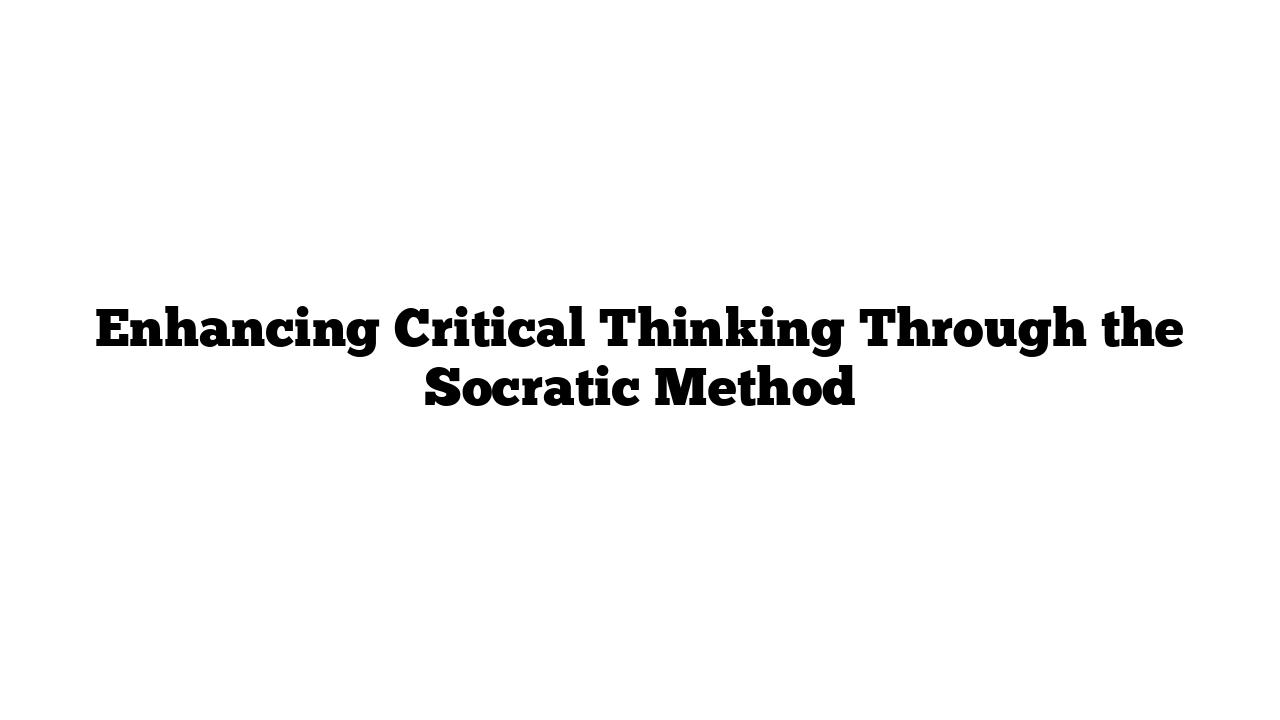The journey to improve critical thinking can be traced back to Socrates, a foundational figure in Western philosophy. During his trial in ancient Athens, Socrates was accused of corrupting the youth and rejecting the gods of the city. Despite the charges against him, it wasn’t his supposed knowledge that made him a target; it was his tendency to ask probing questions that challenged conventional thinking.
The Power of Questions
Socrates eschewed formal lectures, preferring instead to engage in meaningful conversations with friends and strangers alike. His dialogues weren’t about asserting his knowledge; rather, they were about exploring ideas through questions. This method not only encouraged deeper understanding but also revealed flaws in reasoning. Socrates famously claimed that he knew nothing, yet his questions led his interlocutors to uncover their assumptions and confront the inconsistencies in their beliefs.
A Case Study: The Dialogue with Euthydemus
In a fictional dialogue crafted by his student Plato, Socrates engages with a young man named Euthydemus, who believes he understands justice. Socrates systematically questions Euthydemus’s assertions, prompting him to reconsider his definitions of just and unjust actions. When Euthydemus labels lying and theft as unjust, Socrates challenges him by asking if these actions might be just under certain circumstances—such as a general deceiving enemies or boosting the morale of his troops.
Through this method, Euthydemus becomes increasingly uncertain, highlighting how Socratic questioning can lead individuals to realize the complexities of their beliefs. Socrates’s technique acts as a midwife, aiding others in birthing their ideas while forcing them to grapple with their biases.
The Socratic Method Across Disciplines
The Socratic Method transcends the realm of philosophy and has been effectively applied in various fields throughout history:
- Medicine: During the Renaissance, medical students engaged in diagnostic discussions, where a doctor would challenge their reasoning, fostering critical thinking.
- Science: The method found its way into disciplines like astronomy and mathematics, encouraging students to defend their hypotheses and confront their assumptions.
- Faith and Ethics: Following the Protestant Reformation, the Socratic Method was adapted to tackle complex questions of faith, prompting deeper exploration of beliefs.
- Law: In the 19th century, American legal education embraced this questioning approach, challenging students with hypothetical legal scenarios to refine their reasoning.
The ongoing relevance of the Socratic Method is evident even in today’s legal system, where judges use hypothetical situations to anticipate the effects of legislation.
The Role of the Educator
While the Socratic Method can be applied to teach a wide range of subjects, its effectiveness hinges on the educator’s ability to employ it thoughtfully. A skilled Socratic teacher should:
- Be well-versed in the subject matter.
- Approach students with genuine curiosity and humility, rather than showcasing their superiority.
- Foster an affirmative environment, encouraging all contributions and creating a safe space for exploration.
Socrates: A Complex Figure
Socrates himself was not without controversy. He was known to be critical of Athenian democracy, which led to his trial and eventual execution. However, even in his final moments, he remained committed to inquiry and the pursuit of truth, embodying the essence of curiosity.
By embracing the Socratic Method, individuals can enhance their critical thinking skills, fostering a deeper understanding of complex issues. Socrates’s legacy serves as a reminder of the power of inquiry and the importance of challenging our assumptions in the quest for knowledge.
For more insights on critical thinking and philosophy, visit medicaltimes.io.
